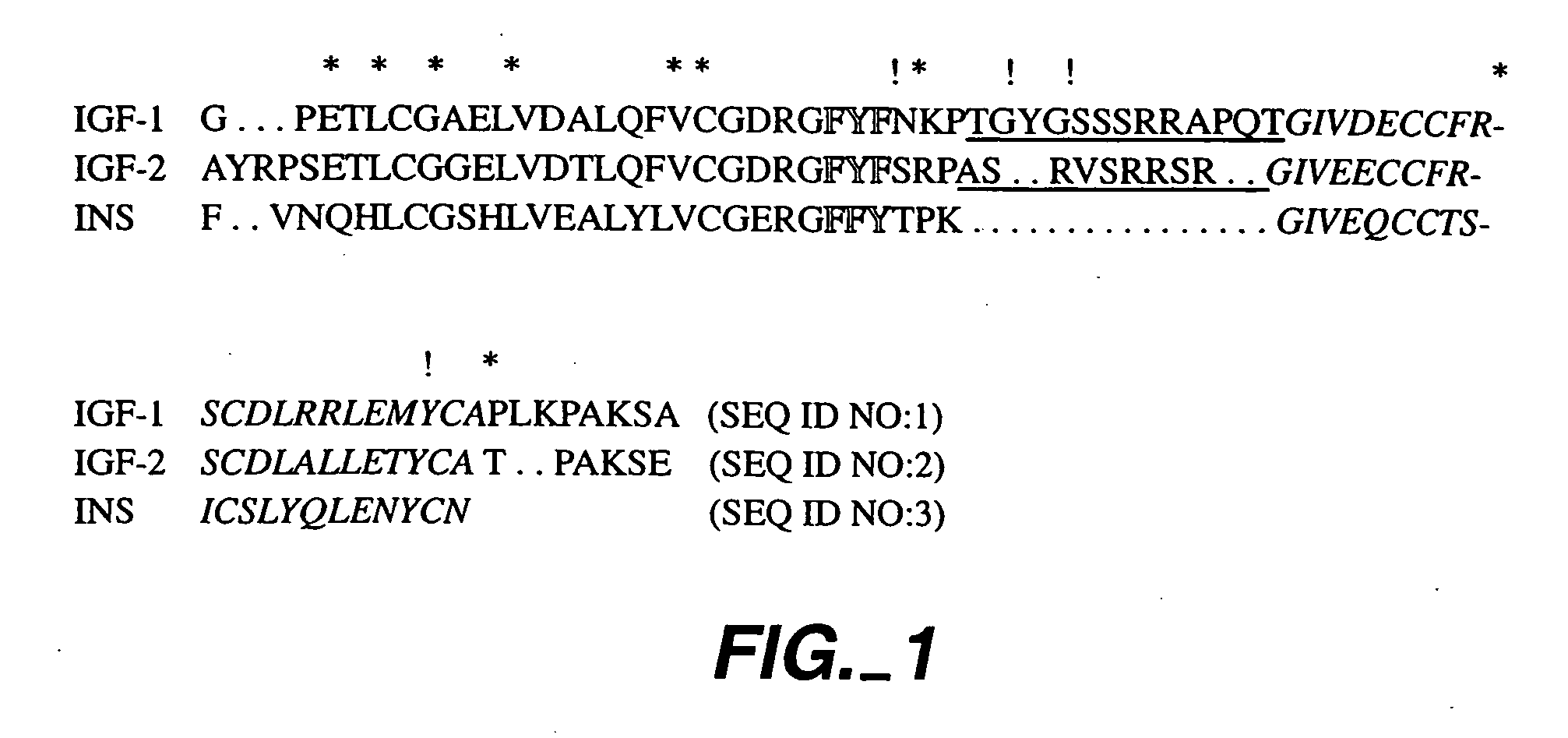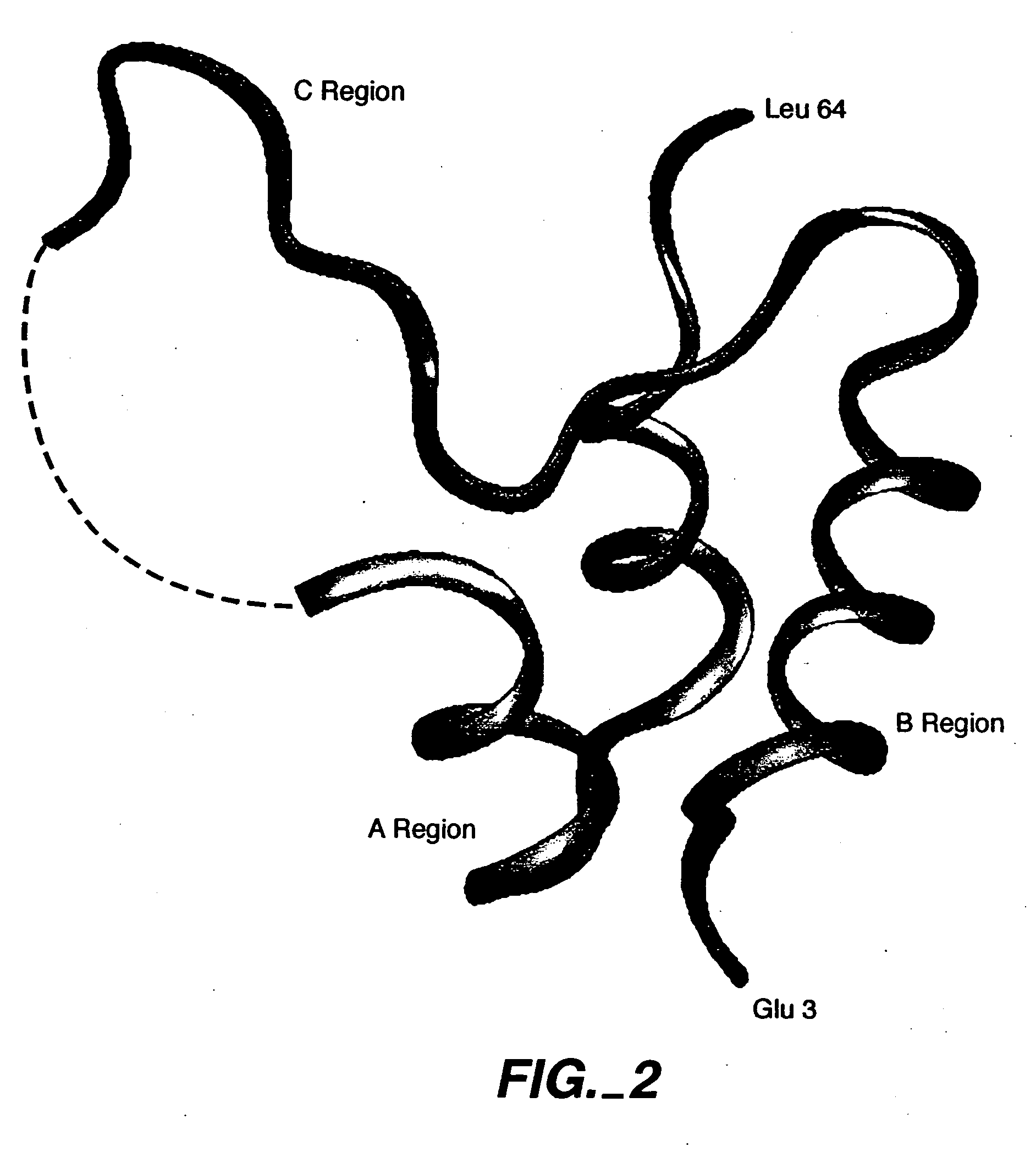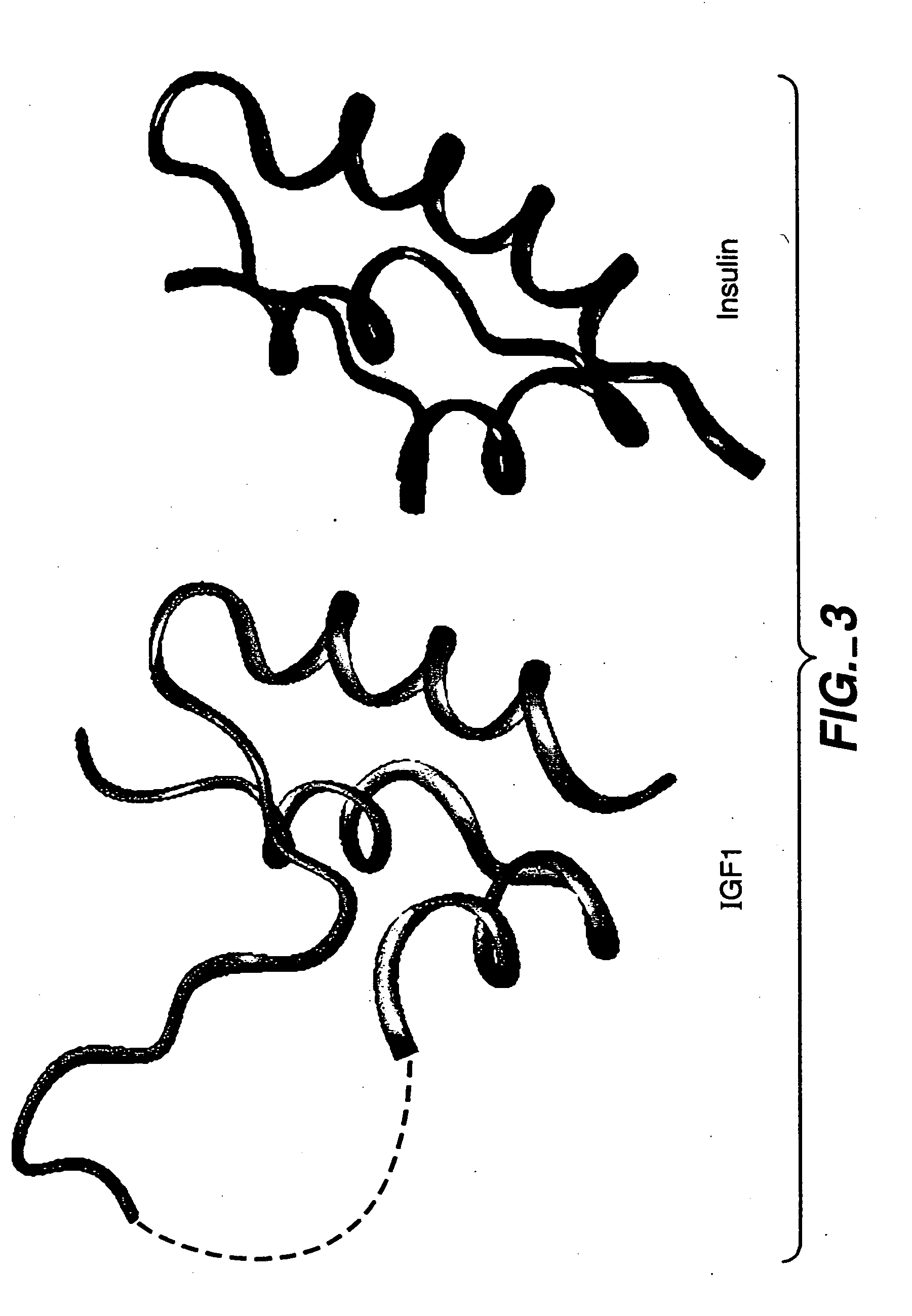Crystallization of IGF-1
a technology of igf and crystals, which is applied in the field of crystals of human igf1, can solve the problems of inability to crystallize igf-1 as well as many other proteins of interest, and the stoichiometry of binding in these complexes is not known
- Summary
- Abstract
- Description
- Claims
- Application Information
AI Technical Summary
Benefits of technology
Problems solved by technology
Method used
Image
Examples
example 1
Crystallization and Characterization of IGF-1 Crystals
Crystallization of IGF-1 and Data Collection
[0176] Recombinant human IGF-1 (rhlGF-1) was obtained as described in the Examples of U.S. Pat. No. 5,723,310 using a polymer / salt combination for phase-forming species and formulated as described in the Examples of U.S. Pat. No. 5,681,814 (acetate, NaCl, polysorbate 20, and benzyl alcohol). Specifically, the initial isolation of IGF-1 from E. coli was achieved using aqueous two-phase separation (Hart et al., Bio / Technology, 12: 1113-1117 (1994)), followed by refolding (Hart et al., Biotechnol. Appl. Biochem., 20: 217-232 (1994)), and subsequent chromatographic purification, including large-scale reverse-phase high-performance liquid chromatography (Olson et al., J. Chromatogr., A675: 101-112 (1994)). It was placed in a vial containing 7 ml of 10 mg / ml rhlGF-1. Prior to crystallization, the IGF-1 was desalted into 0.15 M NaCl and 20 mM sodium acetate (pH 4.5), and diluted to a final ...
example 2
Diffusion-Based Measurement of Detergent Binding
[0199] NMR-derived diffusion measurements were used to estimate the Kd for the interaction between IGF-1 and N,N-bis(3-D-gluconamidopropyl)-deoxycholamine. Samples were prepared in 50 mM phosphate buffer in D20, pH 6.5 (uncorrected meter reading), and contained: 1.0 mM N,N-bis(3-D-gluconamidopropyl)-deoxycholamine+0.5 mM IGF-1, 0.5 mM N, N-bis(3-D-gluconamidopropyl)-deoxycholamine+0.25 mM IGF-1; 0.25 mM N,N-bis(3-D-gluconamidopropyl)-deoxycholamine+0.125 mM IGF-1; or N,N-bis(3-D-gluconamidopropyl)deoxycholamine only (1.0, 0.5, or 0.25 mM). All spectra were acquired at 40° C. on a Bruker AVANCE 500™ spectrometer (Bruker Analytik GmbH) equipped with a 5-mm triple-axis gradient, triple-resonance probe. Diffusion measurements were made with a bipolar pulse pair method with δ=5 ms, τ=2 ms, and Δ=25 or 40 ms for N,N-bis(3-D-gluconamidopropyl)-deoxycholamine alone or N,N-bis(3-D-gluconamidopropyl)-deoxycholamine+IGF-1, respectively (Wu et a...
PUM
 Login to View More
Login to View More Abstract
Description
Claims
Application Information
 Login to View More
Login to View More - R&D
- Intellectual Property
- Life Sciences
- Materials
- Tech Scout
- Unparalleled Data Quality
- Higher Quality Content
- 60% Fewer Hallucinations
Browse by: Latest US Patents, China's latest patents, Technical Efficacy Thesaurus, Application Domain, Technology Topic, Popular Technical Reports.
© 2025 PatSnap. All rights reserved.Legal|Privacy policy|Modern Slavery Act Transparency Statement|Sitemap|About US| Contact US: help@patsnap.com



